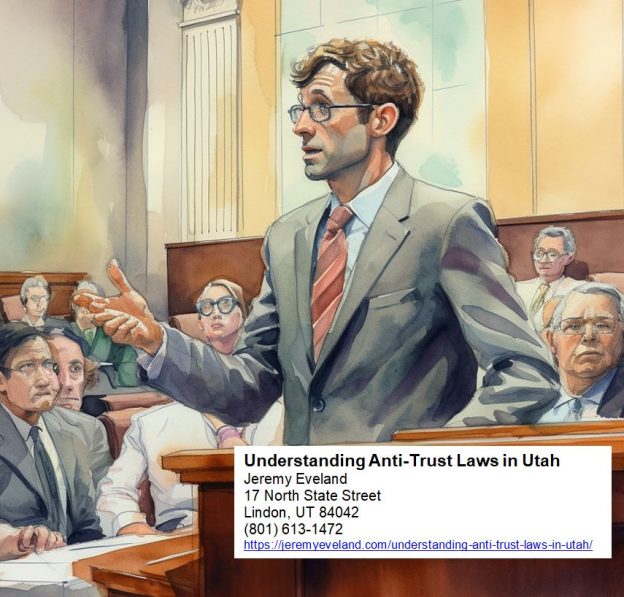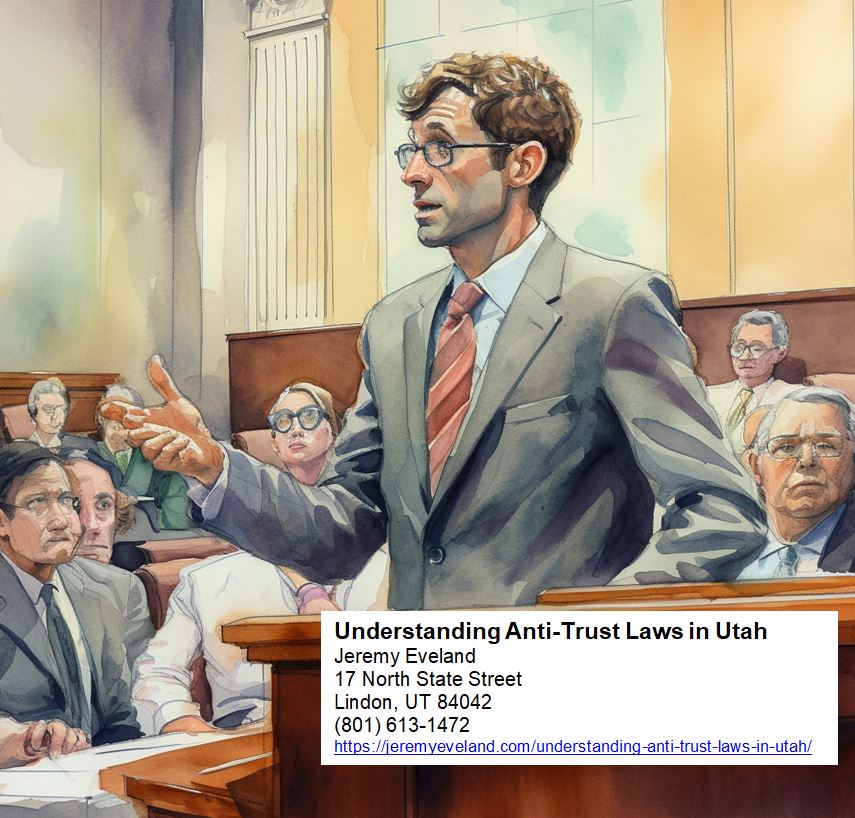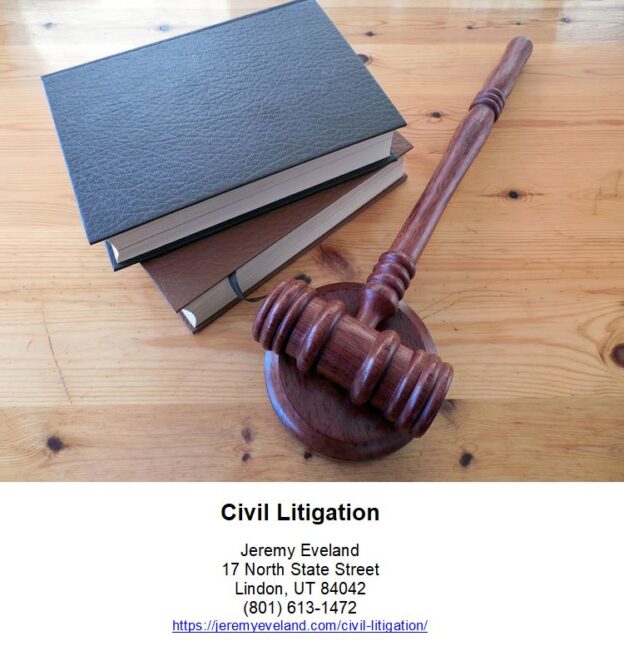-
Attorney at Law
- Introduction
- Common Mistakes to Avoid When Working with a Business Lawyer in Vernal, Utah
- The Importance of Staying Up-to-Date on Business Law in Vernal Utah
- How to Choose the Right Business Lawyer for Your Needs in Vernal
- Understanding the Different Types of Business Law in Vernal UT
- The Benefits of Hiring a Business Lawyer in Vernal Utah
- Business Law Strategies
- Why You Need A Business Attorney For Your Company
“Secure Your Business with Professional Legal Services from Business Lawyer Vernal Utah”
Introduction
Business Lawyer Vernal Utah is a law firm that specializes in providing legal services to businesses in the Vernal, Utah area. Our team of experienced attorneys is dedicated to providing the highest quality legal advice and representation to our clients. We understand the unique needs of businesses in the Vernal area and strive to provide the best possible legal solutions to our clients. Our attorneys have extensive experience in a variety of areas, including business formation, contract drafting and negotiation, intellectual property protection, employment law, and more. We are committed to providing our clients with the highest level of legal service and are dedicated to helping them achieve their business goals.
Common Mistakes to Avoid When Working with a Business Lawyer in Vernal, Utah
1. Not Being Clear About Your Goals: When working with a business lawyer in Vernal, Utah, it is important to be clear about your goals and objectives. Make sure to provide your lawyer with a detailed description of your business and the legal issues you are facing. This will help your lawyer to better understand your needs and provide you with the best legal advice.
2. Not Being Prepared: Before meeting with your lawyer, make sure to have all the necessary documents and information ready. This includes any contracts, financial statements, and other relevant documents. Being prepared will help your lawyer to provide you with the best legal advice.
3. Not Being Open to Advice: When working with a business lawyer in Vernal, Utah, it is important to be open to their advice. Your lawyer is an expert in the field and can provide you with valuable insight and guidance. Make sure to listen to their advice and consider their suggestions.
4. Not Being Proactive: When working with a business lawyer in Vernal, Utah, it is important to be proactive. Make sure to stay up to date on any changes in the law that may affect your business. This will help you to stay ahead of any potential legal issues and ensure that your business is in compliance with the law.
5. Not Being Realistic: When working with a business lawyer in Vernal, Utah, it is important to be realistic about the outcome of your case. Your lawyer will do their best to provide you with the best legal advice, but they cannot guarantee a certain outcome. Make sure to discuss any expectations you have with your lawyer before beginning the process.
The Importance of Staying Up-to-Date on Business Law in Vernal Utah
Staying up-to-date on business law in Vernal, Utah is essential for any business owner or entrepreneur. Business law is the body of law that governs the formation, operation, and dissolution of businesses. It covers a wide range of topics, including contracts, torts, property, and labor law. Understanding the legal requirements of running a business in Vernal, Utah is essential for any business owner or entrepreneur.
Business owners in Vernal, Utah must comply with both state and federal laws. The state of Utah has its own set of laws that govern the formation, operation, and dissolution of businesses. These laws are designed to protect the rights of business owners and ensure that businesses are operated in a fair and ethical manner. Additionally, businesses must comply with federal laws, such as the Americans with Disabilities Act, the Fair Labor Standards Act, and the Family and Medical Leave Act.
It is important for business owners to stay up-to-date on the latest business laws in Vernal, Utah. Laws can change quickly, and it is important to be aware of any changes that may affect your business. Additionally, staying informed about business law can help you avoid costly legal issues. For example, if you are not aware of the latest labor laws, you may be liable for violating them and facing hefty fines.
Staying up-to-date on business law in Vernal, Utah can also help you protect your business from potential legal issues. Knowing the laws can help you identify potential risks and take steps to mitigate them. Additionally, understanding the legal requirements of running a business can help you make informed decisions and ensure that your business is compliant with all applicable laws.
Finally, staying up-to-date on business law in Vernal, Utah can help you stay competitive in the marketplace. Knowing the latest laws can help you identify opportunities to gain a competitive edge over your competitors. Additionally, understanding the legal requirements of running a business can help you make informed decisions and ensure that your business is compliant with all applicable laws.
In conclusion, staying up-to-date on business law in Vernal, Utah is essential for any business owner or entrepreneur. Understanding the legal requirements of running a business can help you protect your business from potential legal issues, make informed decisions, and stay competitive in the marketplace.
How to Choose the Right Business Lawyer for Your Needs in Vernal
When starting or running a business, it is important to have the right legal advice and representation. A business lawyer can help you navigate the complexities of business law and ensure that your business is compliant with all applicable laws. When choosing a business lawyer in Vernal, there are several factors to consider.
First, you should consider the lawyer’s experience and expertise. Make sure that the lawyer you choose has experience in the specific area of business law that you need help with. Ask for references and check the lawyer’s track record to ensure that they have a good reputation.
Second, you should consider the lawyer’s fees. Different lawyers charge different rates, so it is important to find one that fits within your budget. Ask for a fee schedule and make sure that you understand all of the costs associated with the lawyer’s services.
Third, you should consider the lawyer’s availability. Make sure that the lawyer is available to meet with you when you need them. Ask about their availability and make sure that they are willing to work with your schedule.
Finally, you should consider the lawyer’s communication style. Make sure that the lawyer is willing to listen to your concerns and answer your questions. Ask about their communication style and make sure that you feel comfortable working with them.
By considering these factors, you can ensure that you choose the right business lawyer for your needs in Vernal. With the right lawyer, you can ensure that your business is compliant with all applicable laws and that you have the legal advice and representation you need.
Understanding the Different Types of Business Law in Vernal UT
Business law in Vernal, Utah is a complex and ever-evolving field of law. It encompasses a wide range of legal topics, including contracts, torts, business organizations, intellectual property, and more. Understanding the different types of business law is essential for any business owner or entrepreneur in the area.
Contracts are one of the most important types of business law in Vernal, Utah. A contract is an agreement between two or more parties that is legally enforceable. It can be written or verbal, and it outlines the rights and obligations of each party. Contracts are used to protect the interests of both parties and to ensure that all parties are held accountable for their actions.
Torts are another type of business law in Vernal, Utah. Torts are civil wrongs that are committed by one party against another. These wrongs can include negligence, intentional harm, or breach of contract. If a tort is committed, the injured party may be able to seek compensation for their losses.
Business organizations are also a type of business law in Vernal, Utah. These organizations are created to conduct business activities and are regulated by state and federal laws. Common types of business organizations include corporations, limited liability companies, partnerships, and sole proprietorships. Each type of organization has its own set of rules and regulations that must be followed.
Intellectual property is another type of business law in Vernal, Utah. Intellectual property includes trademarks, copyrights, patents, and trade secrets. These types of property are protected by law and can be used to protect the interests of the owner.
These are just a few of the different types of business law in Vernal, Utah. It is important for any business owner or entrepreneur to understand the different types of business law in order to protect their interests and ensure that their business is compliant with all applicable laws.
The Benefits of Hiring a Business Lawyer in Vernal Utah
Hiring a business lawyer in Vernal, Utah can be a great asset to any business. A business lawyer can provide invaluable advice and guidance on a variety of legal matters, from contract negotiations to dispute resolution. Here are some of the benefits of hiring a business lawyer in Vernal, Utah:
1. Expertise: A business lawyer in Vernal, Utah has the expertise and experience to provide sound legal advice and guidance on a variety of business matters. They can help you understand the legal implications of any business decisions you make, and provide advice on how to best protect your business interests.
2. Cost Savings: Hiring a business lawyer in Vernal, Utah can save you money in the long run. By having a lawyer on your side, you can avoid costly legal mistakes and disputes that can be expensive to resolve.
3. Negotiation Skills: A business lawyer in Vernal, Utah can help you negotiate the best possible terms for any contracts or agreements you enter into. They can also help you resolve any disputes that may arise.
4. Compliance: A business lawyer in Vernal, Utah can help you ensure that your business is in compliance with all applicable laws and regulations. This can help you avoid costly fines and penalties.
5. Representation: A business lawyer in Vernal, Utah can provide you with representation in court if necessary. This can be invaluable if you are involved in a dispute or lawsuit.
Hiring a business lawyer in Vernal, Utah can be a great asset to any business. They can provide invaluable advice and guidance on a variety of legal matters, from contract negotiations to dispute resolution. They can also help you save money in the long run by avoiding costly legal mistakes and disputes. Finally, they can provide you with representation in court if necessary. If you are looking for a business lawyer in Vernal, Utah, contact a local law firm today.
Business Law Strategies
Business Law Strategies
Business law is a complex and ever-evolving area of law that affects all aspects of business operations. It is important for business owners to understand the legal implications of their decisions and to develop strategies to protect their interests. Here are some strategies to consider when developing a business law strategy:
1. Understand the Basics: It is important to understand the basics of business law, including the different types of business entities, the different types of contracts, and the different types of laws that apply to businesses. This knowledge will help you make informed decisions and protect your interests.
2. Consult an attorney: It is important to consult an experienced business attorney when making decisions that could have legal implications. An attorney can provide advice on the best course of action and help you understand the legal implications of your decisions.
3. Draft Contracts: Drafting contracts is an important part of any business law strategy. Contracts should be clear and concise and should include all relevant information. It is important to ensure that all parties understand the terms of the contract and that the contract is legally binding.
4. Comply with Laws: It is important to comply with all applicable laws and regulations. This includes understanding the different types of taxes that apply to businesses, understanding the different types of licenses and permits that may be required, and understanding the different types of labor laws that apply.
5. Protect Intellectual Property: It is important to protect your intellectual property, such as trademarks, copyrights, and patents. This can be done by registering your intellectual property with the appropriate government agency and by taking steps to protect it from infringement.
6. Develop Risk Management Strategies: Developing risk management strategies is an important part of any business law strategy. This includes understanding the different types of insurance that may be necessary, understanding the different types of liabilities that may arise, and understanding the different types of legal remedies that may be available.
7. Monitor Changes in the Law: It is important to monitor changes in the law that may affect your business. This includes understanding new laws and regulations, understanding changes in existing laws and regulations, and understanding changes in court decisions.
By understanding the basics of business law and developing strategies to protect your interests, you can ensure that your business is in compliance with the law and that your interests are protected.
Why You Need A Business Attorney For Your Company
As a business owner, it is important to understand the importance of having a business attorney on your side. A business attorney can provide invaluable legal advice and guidance to help you navigate the complexities of the business world.
A business attorney can help you with a variety of legal matters, from drafting contracts and agreements to resolving disputes and protecting your intellectual property. They can also provide advice on tax and regulatory compliance, as well as help you navigate the legal aspects of mergers and acquisitions.
Having a business attorney on your side can also help you avoid costly legal mistakes. They can review contracts and other documents to ensure that they are legally sound and protect your interests. They can also provide advice on how to structure your business to minimize your legal risks.
A business attorney can also help you protect your business from potential lawsuits. They can review contracts and other documents to ensure that they are legally sound and protect your interests. They can also provide advice on how to structure your business to minimize your legal risks.
Finally, a business attorney can provide invaluable advice on how to handle disputes and other legal issues that may arise. They can help you negotiate settlements and represent you in court if necessary.
Having a business attorney on your side can help you protect your business and ensure that you are in compliance with all applicable laws. They can provide invaluable legal advice and guidance to help you navigate the complexities of the business world.
Areas We Serve
We serve individuals and businesses in the following locations:
Salt Lake City Utah
West Valley City Utah
Provo Utah
West Jordan Utah
Orem Utah
Sandy Utah
Ogden Utah
St. George Utah
Layton Utah
South Jordan Utah
Lehi Utah
Millcreek Utah
Taylorsville Utah
Logan Utah
Murray Utah
Draper Utah
Bountiful Utah
Riverton Utah
Herriman Utah
Spanish Fork Utah
Roy Utah
Pleasant Grove Utah
Kearns Utah
Tooele Utah
Cottonwood Heights Utah
Midvale Utah
Springville Utah
Eagle Mountain Utah
Cedar City Utah
Kaysville Utah
Clearfield Utah
Holladay Utah
American Fork Utah
Syracuse Utah
Saratoga Springs Utah
Magna Utah
Washington Utah
South Salt Lake Utah
Farmington Utah
Clinton Utah
North Salt Lake Utah
Payson Utah
North Ogden Utah
Brigham City Utah
Highland Utah
Centerville Utah
Hurricane Utah
South Ogden Utah
Heber Utah
West Haven Utah
Bluffdale Utah
Santaquin Utah
Smithfield Utah
Woods Cross Utah
Grantsville Utah
Lindon Utah
North Logan Utah
West Point Utah
Vernal Utah
Alpine Utah
Cedar Hills Utah
Pleasant View Utah
Mapleton Utah
Stansbury Par Utah
Washington Terrace Utah
Riverdale Utah
Hooper Utah
Tremonton Utah
Ivins Utah
Park City Utah
Price Utah
Hyrum Utah
Summit Park Utah
Salem Utah
Richfield Utah
Santa Clara Utah
Providence Utah
South Weber Utah
Vineyard Utah
Ephraim Utah
Roosevelt Utah
Farr West Utah
Plain City Utah
Nibley Utah
Enoch Utah
Harrisville Utah
Snyderville Utah
Fruit Heights Utah
Nephi Utah
White City Utah
West Bountiful Utah
Sunset Utah
Moab Utah
Midway Utah
Perry Utah
Kanab Utah
Hyde Park Utah
Silver Summit Utah
La Verkin Utah
Morgan Utah
Vernal UT Business Attorney Consultation
When you need help from an attorney for business law in Vernal, call Jeremy D. Eveland, MBA, JD (801) 613-1472 for a consultation.
Jeremy Eveland
17 North State Street
Lindon UT 84042
(801) 613-1472
Related Posts
Business Lawyer Brigham City Utah
Mastering Business Law: Key Essentials For Success
Business Lawyer Centerville Utah
Shareholder Agreements in Utah
Business Lawyer Hurricane Utah
Business Lawyer South Ogden Utah
Last Will and Testament Lawyer
Business Lawyer Heber City Utah
Business Lawyer Hurricane Utah
Business Lawyer West Haven Utah
Do I Need A License To Start A Business?
Business Lawyer Bluffdale Utah
Business Lawyer Santaquin Utah
Legal Implications of Cryptocurrency in Business Transactions
Business Lawyer Smithfield Utah
Structuring A Flow Through Entity
Business Lawyer Woods Cross Utah
Business Lawyer Grantsville Utah
Structuring Turn Around Investments
Business Lawyer North Logan Utah
How Many Types of Business Law Are There?
Business Lawyer West Point Utah
[geocentric_weather id=”2fc19928-ec10-45b3-bcfb-c8e12f90d811″]
[geocentric_about id=”2fc19928-ec10-45b3-bcfb-c8e12f90d811″]
[geocentric_neighborhoods id=”2fc19928-ec10-45b3-bcfb-c8e12f90d811″]
[geocentric_thingstodo id=”2fc19928-ec10-45b3-bcfb-c8e12f90d811″]
[geocentric_busstops id=”2fc19928-ec10-45b3-bcfb-c8e12f90d811″]
[geocentric_mapembed id=”2fc19928-ec10-45b3-bcfb-c8e12f90d811″]
[geocentric_drivingdirections id=”2fc19928-ec10-45b3-bcfb-c8e12f90d811″]
[geocentric_reviews id=”2fc19928-ec10-45b3-bcfb-c8e12f90d811″]
















